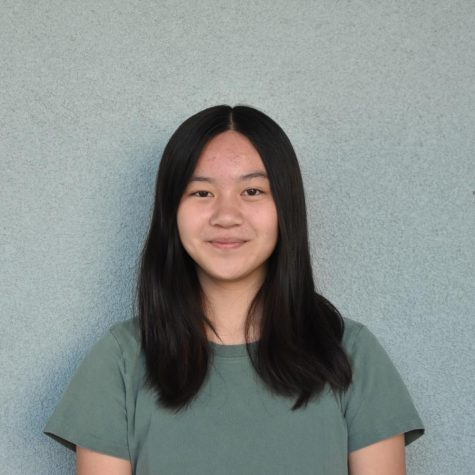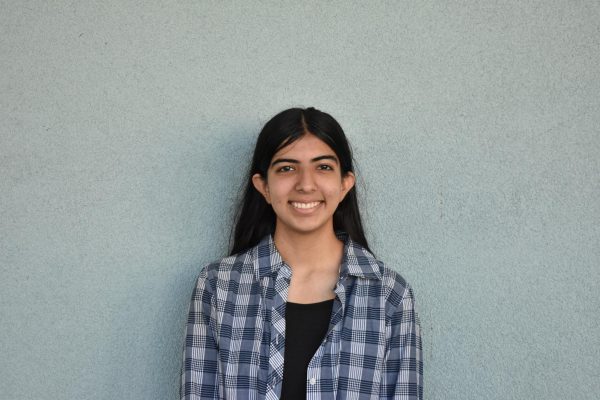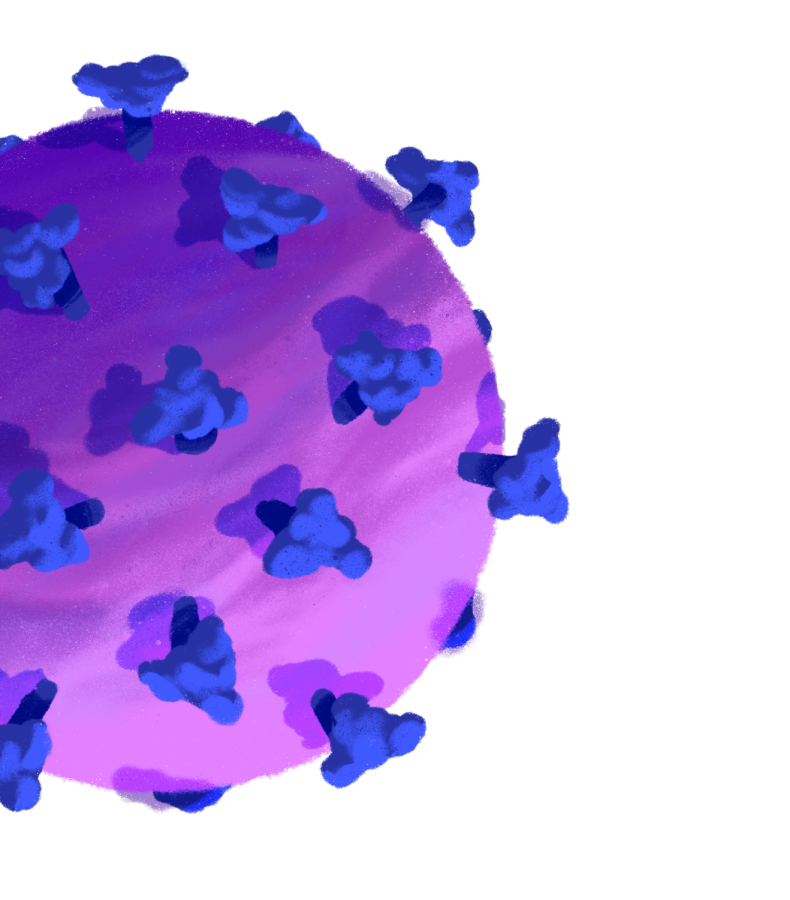PAUSD community adapts COVID-19 protocols to Omicron presence
This semester, rising case numbers and the recent Omicron variant have forced the Palo Alto Unified School District (PAUSD) to adapt rapidly to new challenges, including a surge in district cases that has contributed to student and staff absences.
While the Omicron variant has not been found to cause more severe illness than other variants of COVID-19, it is much more contagious than the original strain of the virus. According to PAUSD Superintendent Don Austin, the new variant has altered the district’s expectations. “I think the biggest change for all school districts is the acknowledgement that we’re going to have case counts that don’t look like they used to,” he said. “We had to shift and come up to speed with the first wave of COVID-19, and then go through Delta, which was how we started the school year. Back then, eight or 10 cases in a week was kind of a big deal. [Now, there is] Omicron, with 380 cases in the first week.”
Despite the growing case numbers, the district has worked to avoid shutting down schools and returning to online learning. “I saw the harm that was done during our last closure,” Austin said. “If you missed the second half of your junior year and your entire senior year, which all those kids did, you don’t ever get that back. It was bad in so many ways. Unless we are mandated to close by an outside agency, we will not make that decision on our own.”
Schools remain open with the help of parent volunteers. On Jan. 8, over 800 volunteers were called to action by 1 Palo Alto, a program that encouraged parents to assist support staff. According to Principal Wendy Stratton, it was a proactive measure designed to combat potential staff shortages. Stratton added that parents have filled in a variety of jobs, from working as classroom aide to assisting in the front office. “They’ve done more of what we call the classified side of things: not the certificated teacher jobs, but the support jobs,” she said.
Due to the rapid increase in cases, the district has also stopped sending out close-contact notices, which previously notified parents when their students were exposed to someone who tested positive. “In September, our numbers were low, so it wasn’t incredibly difficult to be able to identify a positive student and their close contacts,” Austin said. “With Omicron, it was ridiculous. Parents would have received a letter every single day.”
English teacher Diane Ichikawa felt that the absence of close-contact notices altered her mindset. “A lot of health professionals are basically saying to assume that you either will get it or that everybody around you already has it,” Ichikawa said.
One senior, who preferred to stay anonymous for health privacy reasons, felt that the absence of close-contact notices did not create a significant change in their behavior. “Although the close-contact notices might have been helpful to let some people know to get tested, if I ever got that notice, I would just make sure to watch my symptoms closely,” they said.
For students and staff who wish to get tested, PAUSD offers multiple options both on and off-campus. Gunn’s testing clinic is open from 9 a.m. to 4 p.m. on Fridays. Students can also get tested at any other site at PAUSD as well as at the Cubberley Community Center, which is open for testing five days a week from 8 a.m. to 4 p.m. At-home testing also remains a viable option for students and staff alike. The “COVID Clinic” page on the PAUSD website includes a schedule with testing site availability and information on how to register.
Assistant Principal Leonel Argumedo acknowledged that much of the process of reporting and interpreting results for off-campus tests is based on the honor system. “We do encourage our students and our families to report [positive cases],” he said. “That will also allow us to know where we stand and what we need to do to keep everyone else safe.”
For those who test on campus, Stratton noted positive results will be automatically reported. “It’s no longer necessarily the honor system because we actually will know [the positive result for PAUSD tests] immediately,” she said.
For individuals who do test positive, the minimum isolation time has been reduced from 10 days to five. According to the PAUSD website, individuals who test negative on or after day five of the onset of symptoms or a positive test, whichever was first, may return to campus the next day. Counting starts on day zero, or the first day that the student exhibits symptoms or takes a test. The isolation timeline was first shortened nationally by the Centers for Disease Control and Prevention, allowing the California Department of Public Health to implement the same change. Positive case numbers for every site are posted every Tuesday on the PAUSD website.
French teacher Laura Lizundia felt that this transition was reasonable given the circumstances. “I’m okay with it, given where we live and the fact that the large majority of people in the district are overwhelmingly boostered already,” she said.
At the classroom level, there have not been any concrete changes due to the surge. “There are no different protocols, simply because the school and the district have not told us to make any different protocols,” Ichikawa said.
However, teachers have been making individual adjustments for both their own and their students’ safety. Ichikawa noted that she was slightly stricter about students lowering their masks to eat and drink, while Math Department Instructional Lead David Deggeller has allowed for more flexible seating in his classes. “Rather than having students sit [in table groups], I have them sit in rows and columns,” he said. “I re-emphasized that if students are not feeling safe, they can move themselves around physically in the classroom.”
Teachers have also had to negotiate student absences. For some, like Ichikawa, this means increased communication with students. “I have been emailing or having phone calls with students or their families,” she said. “There has been an uptick in out-of-classroom work.”
Others, like Deggeller, are making materials available online. “I have a few students who were considering switching to independent study, which is a challenge,” he said. “We teachers have been trying to be flexible and [are] making a lot of what we do in class also available online. Now, they can study with the hopes that they will come back and join us when they and their families feel safe.”
The same anonymous senior found the process of catching up in the classes they missed to be straightforward. “There’s definitely a lot of work to make up,” they said. “But most teachers are pretty understanding, and they’re able to send me things that we did in class. [They] were pretty willing to give me extensions.”
According to Argumedo, while many absences are COVID-19-related, many are also attributed to other unrelated illnesses and health concerns. Ichikawa added that while some students did not have COVID-19, they stayed home because they lived with elderly family members. “They’re being extra cautious,” she said. Regardless, Deggeller emphasized the importance of being adaptable during this time. “We’ve learned a lot of tricks,” he said. “We’ve learned how to be flexible. This Omicron thing is new, and it’s a little different. But we’re not really batting an eye because we’ve seen worse and we’ve adapted before.”
Your donation will support the student journalists of Henry M. Gunn High School. Your contribution will allow us to purchase equipment and cover our annual website hosting costs.

On staff since January 2021, junior Carly Liao is a Forum editor for The Oracle. Outside of the newspaper, she enjoys running, doing crossword puzzles...

Senior Amann Mahajan is the editor-in-chief of The Oracle and has been on staff since January 2022. When she’s not reporting, she enjoys solving crosswords,...


